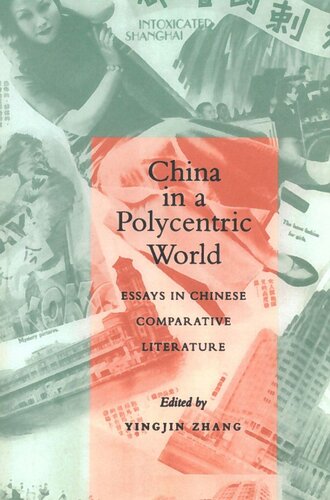

Most ebook files are in PDF format, so you can easily read them using various software such as Foxit Reader or directly on the Google Chrome browser.
Some ebook files are released by publishers in other formats such as .awz, .mobi, .epub, .fb2, etc. You may need to install specific software to read these formats on mobile/PC, such as Calibre.
Please read the tutorial at this link: https://ebookbell.com/faq
We offer FREE conversion to the popular formats you request; however, this may take some time. Therefore, right after payment, please email us, and we will try to provide the service as quickly as possible.
For some exceptional file formats or broken links (if any), please refrain from opening any disputes. Instead, email us first, and we will try to assist within a maximum of 6 hours.
EbookBell Team

4.7
16 reviewsThis collection provides a critical reexamination of the development and current status of comparative literature studies that engage the literary practices of both China and the West. In so doing, it attempts to refashion literary methodologies and cultural theories in Chinese studies and reread several noncanonical texts in ways that cut across disciplines, genders, and modernities. Eschewing conventional taxonomies such as the study of literary influences and parallels, this volume shifts the emphasis from Chinese-Western comparativism to a critical rereading of Chinese or China-related texts using a variety of new critical approaches. Essays that draw on literary history, comparative poetics, modernist aesthetics, feminist studies, gender theory, and postcolonial discourse exemplify how multifaceted approaches can enrich our understanding of this field. The essays are grouped in three parts: studies of disciplines, institutions, and canon formation; gender, sexuality, and the body; and technology, modernity, and aesthetics. They cover a range of subjects, including the challenge of East-West comparative literature, the impact of literary theory on Sinological research, canon formation in traditional Chinese poetry, gender and sexuality in Ming drama, contemporary Chinese fiction and television drama, the problem of translation, the influence of science fiction, and the “cult of poetry” in post-Mao China. The introductory chapter traces the rise of the Chinese school of comparative literature and addresses the issues facing Western scholars of Chinese-Western comparative literature. A concluding chapter summarizes recent remappings of the geocultural world and outlines future possibilities for comparative literature.